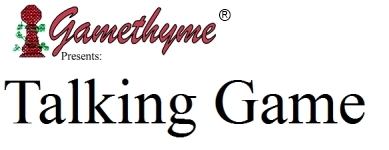Mostly for political stuff. Because that's the way the world is going these days.
I have figured out how to get notifications from it, so Steph shared this the other day, and tagged me, and it notified me. And I laughed, and I responded saying basically, "I wish I was as good as she thinks I am."
Because I still lack confidence in my ability as a gamemaster.
Most RPGs put a heavy load on their GMs. Every GM chapter somewhere includes the phrase, "As a GM, you are responsible for ... "
Ugh. Responsibility. I just want to play.
So here's the thing that all of those GM advice chapters forget:
Games are meant to be fun, and making fun is a group effort. A cooperative group effort. And the GM is only one member of the group.
Players have every bit as much responsibility, here, as the GM. Dumping all of that responsibility on the GM is a recipe for pressure and stress, which leads to GM Burnout or other problems.
Yes, the GM creates the world and controls the NPCs and gives the PCs clues - but players need to engage. If your GM gives you clues about a dragon in the mountains and the party decides to investigate the city sewers, then one of two things is going on here:
Players have every bit as much responsibility, here, as the GM. Dumping all of that responsibility on the GM is a recipe for pressure and stress, which leads to GM Burnout or other problems.
Yes, the GM creates the world and controls the NPCs and gives the PCs clues - but players need to engage. If your GM gives you clues about a dragon in the mountains and the party decides to investigate the city sewers, then one of two things is going on here:
- The GM is being too subtle with the clues.
- The players are jerks.
No. Really.
A good GM isn't going to just slaughter your characters, so if you're chasing a dragon into the mountains, then the GM believes that you can defeat the challenge. That is, by the way, not necessarily the same thing as killing the dragon.
GMs can be wrong about what their party can accomplish, by the way. The first time I ran a D&D 3E game, all of us were new to 3E. I slaughtered them with what I thought should have been an easy encounter. It was too many skeletons who had to move through a narrow hallway to get to the players. "Narrow" as in "one square wide."
"Well," said one player sardonically after the last PC dropped, "That was fun."
"Hang on," I said, "Can we try that again?"
So we rewound. I walked them through flanking and opportunity attacks (and how to avoid them). And we tried it again. I didn't reduce the number of skeletons, because they'd have seen how many there were. I did reduce the number of hit points that each skeleton had, though. And the party ended up narrowly beating the encounter.
The players made allowances for my error - and I helped them find a few mechanical tricks that they could use. Together, we had fun. We both gave a bit. And that first session laid the groundwork for a fun game to follow, because after that point they trusted me - and I learned more of what I was doing with every session that followed.
The point is: We worked together to find the fun in the game.
For the record: I actually played in a Rifts game that I sometimes miss, even to this day. It was a good game. A fun game. Because the GM had a good idea and he allowed the players to contribute to his idea.
A lot of story games talk about there being four good responses a GM can give a player:
- Yes, and ...
- Yes, but ...
- No, but ...
- No, and ...
That's not entirely inaccurate. Most everyone agrees that "No, and ..." is the weakest/worst response. And I agree completely (even though it does have its place - but that's another discussion for another time, I think).
But players have the same selection of responses - and need to learn to use them.
I'm still learning this whole GM thing, even though I've been running games for more than 20 years, now. I ran a Cthulhutech game a few years ago that ... well, it was flat. And not good. I had Ideas, and I didn't communicate well to the players what I wanted to do with those ideas. Which means that the characters didn't support the play I was hoping for, and the players didn't do anything.
I'm currently running an L5R game. And I'm loving it. I hope I communicated well what my goals were to my players. I suspect I communicated enough, because they keep coming back.
Right now, I've railroaded them a little bit. I closed some doors behind them and won't let them backtrack like they want to. But I think they trust me by now.
I even managed to use the first few sessions as a system tutorial, gradually upping the difficulty. It also gave me a good idea of how the players were going to react to various breadcrumbs. And together we're fumbling through the sandbox.
The important word in that sentence is "together."

No comments:
Post a Comment